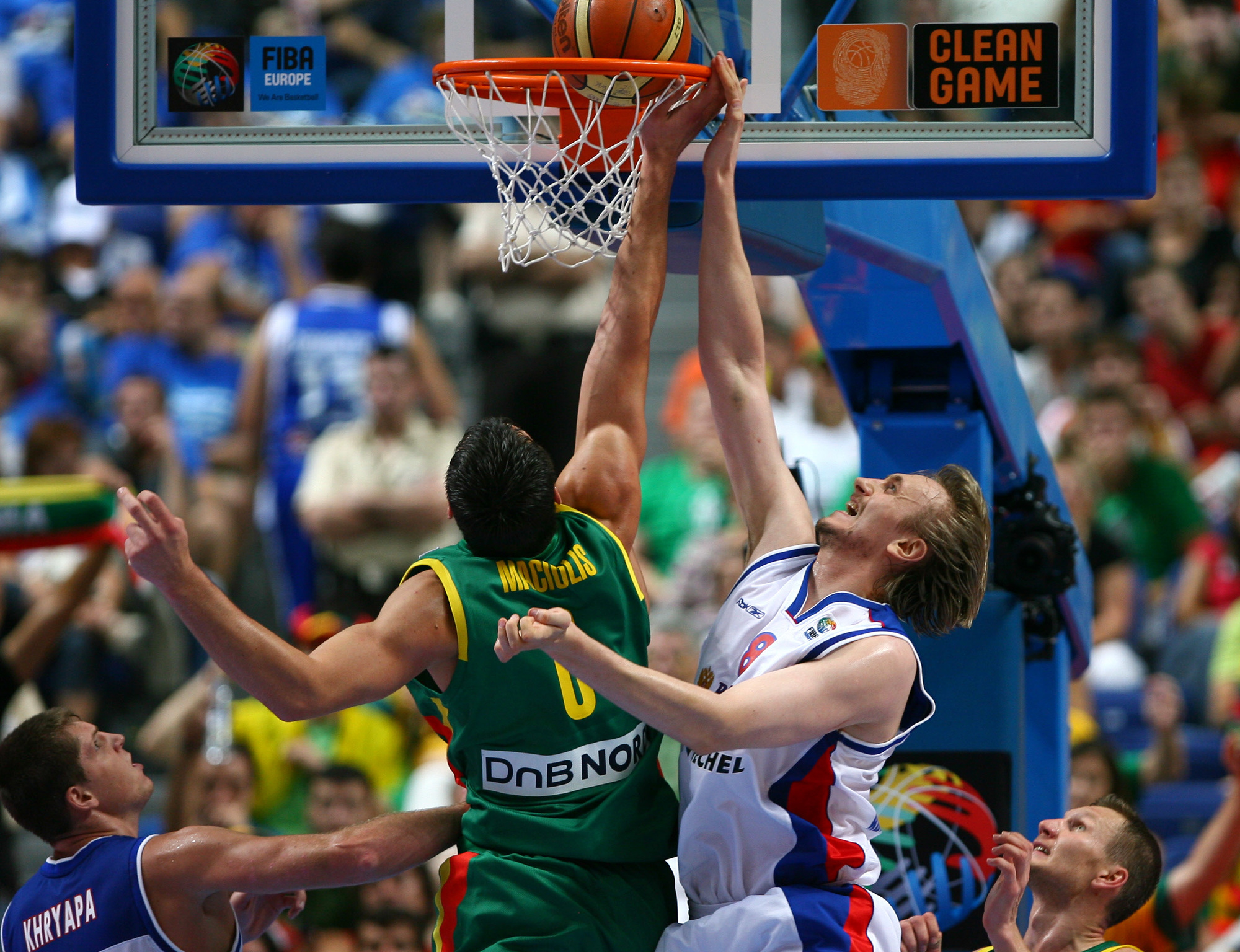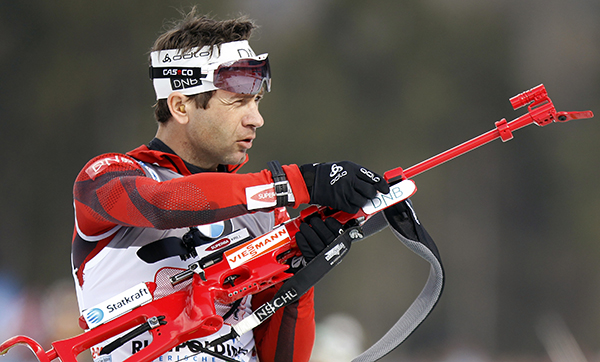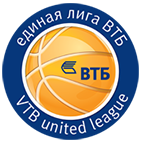13january
Nikita Morgunov On Veteran Players (Part II)

2007 EuroBasket champion and former CSKA forward Nikita Morgunov wraps up his discussion of veteran players for VTB-League.com's Expert Opinion blog.
***
In Part I, I shared my opinion about the role of a veteran player on a team and their approach to the game, using my personal experience and providing examples of current veterans, some of whom play in the VTB United League. To continue that theme, I'd like to talk about a veteran's mental approach as well as the reasons for continuing to play even when your best years are behind you.
Added Value
Veterans have a lot on their plate. They're expected to do more than deliver a result. They are also expected to help make the team and individual players better. That's how the modern game functions. Coaches are hesitant to sign veterans when putting together a roster. In the NBA, a player over 30 is seen as a veteran, whereas a 30-year-old here is expected to "start thinking about retirement." We often focus on potential and don't have time for veterans. Of course, as soon as the season starts and management demands results, teams are just as quick to forget about potential.

No matter the business, a true professional is difficult to replace. A lot of time and resources are invested in preparing someone or finding a replacement. That's why there's high demand for experienced players who have already played in top international leagues or at Russia's top clubs. At the same time, anyone over 30 is viewed as a risk by the coach. It could be for a variety of reasons: past injuries, physical fitness or the need to take an individual approach to the training process. Those hindrances don't always fit into a coach's rebuilding plans, especially in Europe.
Have you noticed that in America, stars often have personal coaches, who aren't necessarily on staff with the team, even if there are several specialists at the club? Think about how we used to take care of our vehicles and got them to last for 20-30 years. Now it's easier to buy a new or lightly-used car.
Bjørndalen's Example
It's interesting to note how many veteran players can command total respect in the locker room, but once they decide to enter coaching, struggle to control a team. In part, it has to do with a change in status and changed dynamic with former teammates. I'm sure my readers can provide examples of players who failed to meet expectations in the coaching profession. In the end, you need a player who can match up physically with the rest of the team, in addition to providing experience and stability. All of that demands major effort and detailed attention to individual preparation, both the physical and mental aspects. It also requires additional time, of which there's little in Europe.
Let me try to explain what I mean. The individual workouts on a European team are run by the coaching staff and head coach. Our "dictator-coaches" don't like players to miss team workouts. Every coach will find convincing arguments for why it has to be that way, but in the end, there's not enough time to recover or fit in individual workouts (two workouts per day are common in Europe), not to mention spend time with family...
While younger players may also have families, veterans often have older children and need to spend more time with them every day. When you're in that situation, it's so much more important to have a qualified coach, someone with the right "know-how." There's no universal solution or magic workout. You need experience and knowledge. Unfortunately, I have to admit that there aren't many people in Russia who have experience excelling in sports past the age of 35. Of those who do, few have gone into coaching. As a result, there's not much general knowledge about to work with veterans during the season and in the offseason.

Modern technology makes it possible to play until your 40. With the right approach from an early age, many remain professional athletes until 45 or 50. Take Ole Einar Bjørndalen's career, for example! Others include Merlene Ottey, Victor Saneev, weight-lifter Vasily Ivanovic Alexeev, hockey players Igor Larionov, Viacheslav Fetisov, basketball players Jason Kidd, Tim Duncan... I could keep going for a long time, naming people from different sports who pushed their bodies in different ways. We could talk about each of these athletes for hours, but here's the main point: If you want a long, successful career in sports, you need to learn to train properly from a young age. You need the right individual workouts and mental approach when you're not with the team. That's where learning from others with experience can be so important.
Returning to Bjørndalen, it's worth reading his interviews from years past and discovering how he constantly tested and experimented with his approach. He wasn't afraid to make changes or stick with something that worked. He's a treasure trove of information for the biathlon as well as a sport like basketball, which needs all the input and knowledge it can get.
Love for the Game...and more
So what motivates someone to keep playing beyond 35? Let's begin with the obvious: you need to love basketball and want to play. Let me clarify further: it's important to enjoy playing, not just working out. There are plenty of guys like that. I won't bother to list them all and risk leaving someone out.
Now, I'm sure there are some cynics out there who think there are more reasons for playing beyond 35 than a love for the game. For the record, I don't get why we decided on 35 as some magic threshold, beyond which talking about a career is ridiculous?!
Nonetheless, what do I tell people, who think that veterans are motivated by more than just a love for the game? In my opinion, if you never fell in love with basketball, nothing will make you switch for something secondary. But there can be other reasons. I'll look at three of the big ones...
1) Going stir-crazy. It can be hard for some players to adjust to life at home. In the past, they expended all of their energy on the court and earned their self-worth from the game. They had an active social life. After retirement, they're always with family, but still need an outlet for their energy. At times, it can come out on their family. That can be okay up to a certain point, but when it's over-the-top, it can tear a family apart. As a result, some guys return to the court and the game. Even if they can't or don't want to practice, they continue to play. But it's generally a compromise with themselves, rather than with their families. They need to continually remind themselves of the game's mental aspect, which is so important.
2) Achieving certain goals. This applies to someone who's still hungry for more victories and wants to win. They may lack any of the following: a) a ring; b) a title; c) a championship.
Some guys enjoy successful careers, but don't get that big win. As a result, they continue playing until they achieve their dream.
3) Finances. Sometimes, a career doesn't quite catch fire and a player fails to make as much money as his peers. Or, he blows it all on cars and girls when he's young and waits to start saving until he's older. But then injuries occur and eat up all the savings. Or something happens in the family: an early wedding, children or taking care of relatives. The money goes to solve those problems, forcing the player to keep competing and earning more.
...We could discuss each issue separately and compare different situations. The reality is that it's difficult to force yourself to keep working and playing after 35, especially for players who got rich young and earned enough money to take care of themselves and their extended families by age 30. Sometimes, the motivation isn't there to keep playing. In the end, only the true fanatics keep playing to the very end. They're the guys that gave the game everything they had on the court and off it. They don't just continue playing, they also have a real positive impact on their team, both during games and beyond the court.
Nikita Morgunov,
1998 World Championships silver medalist, 2007 EuroBasket champion












































